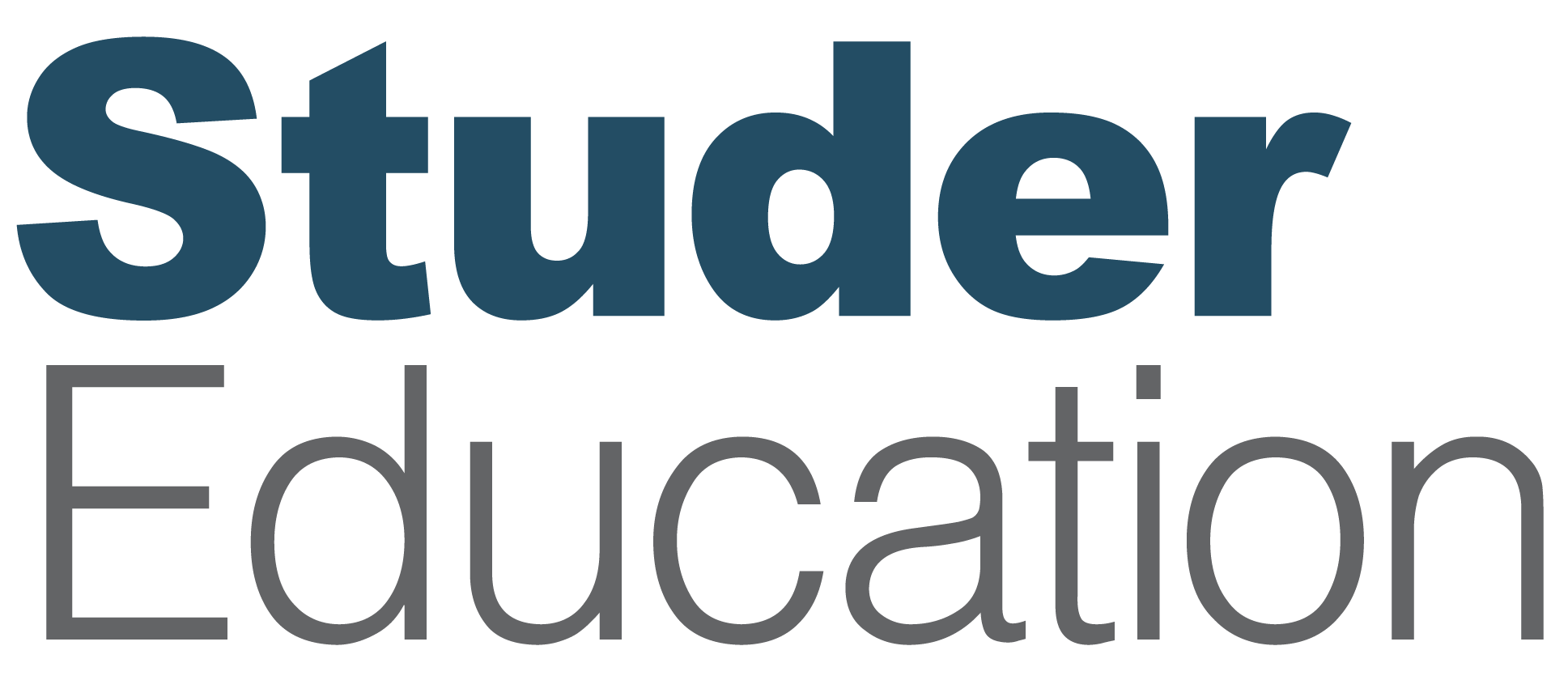To build excitement for the upcoming What’s Right in Education conference in Colorado, Dr. Janet Pilcher invites Superintendent Mike Crawford from nearby Mapleton Public Schools to talk about his continuous improvement journey. Listen as he shares how he maintains strong relationships with the school board, promotes collaboration among staff, and regularly engages in the rounding process.
Latest Episodes
Mike Crawford: In the beginning of that work, one of the words we used a lot was clarity.
Jane Pilcher: Yeah.
Mike Crawford: Whatever we do, we have to be clear. We have to show how different parts of this improvement work link to each other. And what’s everyone’s role in it.
Introduction
[Intro music plays in the background.]
Janet Pilcher: Hello, everyone. Welcome to today’s Accelerate Your Performance podcast, where we gather each week to share strategies for hardwiring excellence in education.
I’m your host, Janet Pilcher. And before we jump in today, I want to let you know how excited I am for our 13th annual What’s Right in Education leadership conference. I look forward to connecting with you, and I know you’ll enjoy learning alongside leaders across the country who are indeed hardwiring excellence in education. Visit studereducation.com/wrie for more details.
Today I’m joined by Superintendent Mike Crawford of Mapleton Public Schools in Denver, Colorado. Our What’s Right in Education conference is in Mike’s backyard. He will join me in welcoming everyone on day two. And next week I’ll talk about some highlighted tools and tactics our partner organizations will share at the conference.
So if you’re coming to the conference, I’ll provide that preview for you. If not, continue to connect with us to gain valuable resources and continued episodes of the problems of practice our partner organizations are solving.
Mike brings 33 years of experience in education. So glad to have him on the show today. He started as a teacher and served as a school counselor and eventually moved into leadership as a principal.
And as he continues to work with his leadership role and as the executive leader, he oversees his district’s continuous improvement process and continues to lead a team to achieve excellence. So let’s dive in with Mike.
Interview
Janet Pilcher: It’s with great pleasure that I welcome Mike Crawford, Superintendent of Mapleton Public Schools. Welcome, Mike.
Mike Crawford: Thanks so much for having me.
Janet Pilcher: Yeah, and so glad that you’re here and we’re going to be connected with you soon. So hope that all is going well in your district. You’ve had a good start to the year.
Mike Crawford: It’s been a really good start to the year and it’s beautiful here in Denver right now. So we’re looking forward to hosting you all.
Janet Pilcher: Yeah, I’m looking forward to being there. I live in Pensacola, Florida and it is still hot and humid, Mike. We’re waiting for that nice, crisp day, but not quite gotten there yet. So looking forward to being in the beautiful part of the country with you all. So I know you’ve been in education for about 33 years, I think.
Mike Crawford: That sounds right.
Janet Pilcher: Yeah Pretty much your lifetime of work and in Mapleton Public Schools most of that time. Kind of interesting. This is Pensacola’s, for the most part, my hometown and I have been able to be in my community and just I know it’s very much a part of your heart to be able to be in the community that you’ve been in for so long.
So talk a little bit, Mike, about what it means to you to have the opportunity to lead within your community where you’ve spent much of your career.
Mike Crawford: Sure. I mean, so this is my first year as superintendent of the district and it’s the honor of a lifetime. I tell people how lucky I am. I’ve been in, like you said, I’ve been in Mapleton, I think 18 years. So most of my career, but even when I wasn’t working right here, I grew up not very far outside of the limits of the school district, and I would work in neighboring districts before that and really admired the work that was happening in Mapleton.
So this is exciting for me. We have had a school board in place, school boards, for a long period of time that are just so focused on what’s best for kids. They really operate together, they work together well, and I think that’s really been one of the secrets that help us do everything else that we do.
Janet Pilcher: That’s great. I mean, that is a nice place to be in this time that we’re in. So I’m sure that you do a lot in really building relationships and connecting with your board. Just kind of curious before we kind of kick into some specifics, but how do you do that? I mean, what’s working for you there?
Mike Crawford: A couple of things and again, we talk here about we do our work on the shoulders of giants. You know, some of these practices that I’ll tell you about are not my invention. They’ve been in place for a little while, but when we get a new board member or two, we do an induction. In fact, this coming weekend, we have a board retreat and it’s really, there are some nuts and bolts in the district business to do, but there’s a lot of working together to find out where we all come from and what we’re trying to accomplish and what the priorities are and developing some agreements about how we communicate with each other and what we expect of one another. So that kind of team building is really important.
And then just regular communication. I write the board every Friday afternoon to digest and say, here’s kind of what the focus of the work was this week that you may need to know about or you might get questions about and having them informed and feel like they can answer questions about what’s going on, but also get their fingerprints on it.
Janet Pilcher: Yeah, so good. You know, it’s when you think about that, I mean, what a great example of how you build that relationship with the board and that two-way street valuing their input, you know, them valuing your input and the leadership team, I’m sure. You know, and sometimes I think, sometimes we get in that situation where, when we talk with the boards, we’re just presenting to them. Like, here’s all the things that we do versus engaging in that two-way conversation about ways that we’re working in partnership. And I think what you’re saying is really critical because, you know, I don’t think boards expect us to be like excellent all the time, right? I mean, they expect good, honest conversation. And I, you know, I think for the most part, they want to be helpful.
Mike Crawford: Absolutely.
Janet Pilcher: And it seems to me like you’ve got that rhythm going.
Mike Crawford: Yeah. And I think it’s, we try to keep the conversations at the right level, too. They’re, you know, the point is about governance. So it’s about policy. It’s about direction. It’s about long-term goals and not getting, you know, two in the weeds with what happened today, but knowing enough about what happened today that it can inform those higher-level conversations.
Janet Pilcher: Yeah, so good. Yeah. Such, and such a good place to be in order to lead your your district.
So let’s talk a little bit about, just something about a project so that you all are doing called Project LIFT. Could you share a little bit about that project and how you focus on building those improvement focused efforts?
Mike Crawford: Sure, so we, Project LIFT, L-I-F-T stands for Leveraging Instruction for Transformation. And we adopted that moniker and set on this work just about the time the pandemic started, which in some ways wasn’t great timing. And in other ways, you know, it did—it helped us focus during through that time.
Let me back up just a little bit. Prior to Project LIFT, we had done a lot of improvement work that had to do with structures and systems in the district. We reinvented over the course of time into a district of all small schools of choice and had done a lot of work on structures and how we’re organized.
Project LIFT was kind of the shift to looking at improving the basic work in the district, the teaching in the classroom, leadership of principals, kind of getting back to, you know, I think in football you’d call it blocking and tackling. What are the basics?
So, so we have there are four levers that we use. One is the instructional infrastructure, and we adopted interim assessments and really invested in helping teachers get better at using classroom data to plan instruction and then to plan their reteach.
One of them is about system leadership. We’ve completely transformed the way we work with school principals. Our principal meetings now are all about learning, and a lot of the learning is from each other. They work together and they’re collaborative.
And so we’ve worked on instructional infrastructure, leadership, support and accountability, which is huge. It’s about how we hold one another accountable and support each other in getting the work done. And I think I’ll talk more about that in a minute.
But then the fourth one is talent management, recruiting and hiring the very best. How do we get better at selecting the right professionals, investing in them, developing them? And then what’s really important now is retaining them in this current environment.
So it’s about getting better at the basics and not doing a lot of fancy reorganization that’s really visible and has a lot of buzzwords. It’s about getting really good at the basics. University of Virginia has been our partner in that work, partnership for leaders in education. They’ve been the convener and they bring school districts together that are working on the same kinds of reform efforts, and it’s just been a super partnership.
Janet Pilcher: Yeah, and you know, it’s a couple of things that you said, but one thing that really resonated with me or just connected is that, you know, that there’s just a lot of stuff that we do. But I think what you’re really focusing on is building that framework that builds great definition and that people can understand, people can connect to, that simplifies it.
Not that the work is simple, don’t get me wrong there, but simplifies it in that way. That it’s very understandable and that people can see how they’re connected to it. Mike, you know, that’s kind of what’s resonating with me. Does that feel right to you?
Mike Crawford: That’s exactly right. In the beginning of that work, one of the words we used a lot was “clarity.”
Janet Pilcher: Yeah.
Mike Crawford: Whatever we do, we have to be clear. We have to show how different parts of this improvement work link to each other and what’s everyone’s role in it. So no, you’re right. Clarity—
Janet Pilcher: Love it.
Mike Crawford: —is huge.
Janet Pilcher: Yeah, love that. And it does. It seems so simple, but it’s not simple to do. You know, I mean, it takes a lot of, I mean, it takes alignment and consistency of practice with leaders in order to execute to that. So, you know, really nice with building that clarity so that people can work from that.
So let’s dig a little bit deeper. When you, your academic improvement is driven off of your 90-day action plan. So, you know, talk about that a little bit, what you’re learning in that process as you’re implementing those plans.
Mike Crawford: Sure, and again, this was a piece of the work that came under Project LIFT that we University of Virginia as our partner. I think part of what we learned as a result of creating and then implementing those 90-day plans is just the power of short cycle planning. So often we create a strategic plan or a long-term plan or a yearly plan, but it’s hard to kind of maintain the focus through a longer period of time and to measure the small things that work. And short cycle planning is keeps it alive—
Janet Pilcher: Yes.
Mike Crawford: —because you’re going to review this plan pretty shortly after you start implementing. And so that’s helped a lot. All of our schools have 90-day plans.
The thing I think that was really hit home to us as we started on that short cycle planning work was just the importance of collaboration. Teachers and lots of others need a chance to get their fingerprints on those plans, feel invested in them, give feedback about what works and what doesn’t work, collaboration and clarity. Those are probably the keys.
Janet Pilcher: Yeah. And you said something a few minutes ago and with accountability connected to that. And it’s interesting, Mike, when I was writing Hardwiring Excellence in Education and writing for the principles, most of them were pretty clear.
But you know, the one that I had to really put a little bit more thought into and how I wanted to formulate it in the book was Principal 6: Be Accountable. And what you said really is the connection to that. Sometimes we think of accountability as something that’s on top of us, that’s driving us.
But I really, I started in the first couple of paragraphs with just that concept, we’re not responsible as leaders to motivate people because they’re responsible for their own motivation. But we are responsible for creating places where people have an opportunity to be successful and to be connected to their work. And you know, what you’re talking about with those systems and approaches and the way that you include people in those conversations around evidence and data, to me is what connects people to their work. They want to be connected. They want to help us achieve goals.
Mike Crawford: Absolutely.
Janet Pilcher: But they’ve got to have that clarity like you’re talking about to get there. Does that make sense there?
Mike Crawford: It does. Yeah, so what we’ve done the last few years is connected to the 90-day plans, but kind of at a higher level, we do an annual, it’s just a document, but it spells out what we call big rocks. So these are the, usually they’re about three, three things that are the focus of our improvement work in the district this year.
And then in the next column related to those three big rocks, let’s say, are tight expectations. Things that we expect happen in every school. There are things for school leadership teams to do, looking at data, conducting walkthroughs to check levels of rigor. You know, these are tight expectations that should happen in every building. And then there are the ways that we’ll monitor those expectations.
But what’s not called out, but implied in all that is some things are loose. They’re big rocks, tight expectations, but what’s not tight is loose. So schools do have some flexibility to do what works for their particular school model or their neighborhood and change it or implement it as it will work for them.
Janet Pilcher: Yeah.
Mike Crawford: That tight, loose kind of leadership is a big part of how we think about accountability.
Janet Pilcher: I love that. Yeah, it’s probably what we call freedom within the fences, right?
Mike Crawford: Exactly.
Janet Pilcher: So you build in the fence. And really, it’s our role as executive leaders and as building strategic direction and vision and how that maps out in that fence, which is what you very specifically talked about. But then as long as you’re within the fence, there’s freedom within that fence to move based on what the need is.
But you know what, Mike, I mean, congratulations on building the fence because what we find as we begin working with people, if that fence isn’t built, it seems chaotic, right, underneath, because people are trying to hit the mark, but they don’t know what marked ahead or what the expectations are.
Mike Crawford: Yeah, that kind of confusion doesn’t help. It doesn’t.
Janet Pilcher: It doesn’t at all. So, Mike, one of the things I know that you all are beginning to do as you build that culture is apply the rounding conversations and talk a little bit about how you’re doing that.
Mike Crawford: Sure. So we have a senior leadership team at the district level that meets together every week. One of the things that we learned in our surveys is that staff didn’t see us enough in buildings or didn’t feel like district leadership was responsive to some of the feedback they’ve been able to give in the past. And so we just developed a schedule and we make sure that one of us is in every building at least every three weeks rounding.
So every three weeks, we have data from every school we can sit down and look at and say, “how are things going? What are the things that are, what are the themes? What are the things that are going well? What are the challenges? Are there resources the schools need that they don’t have?” I would tell you most of those conversations are really positive.
Janet Pilcher: Yes.
Mike Crawford: So it’s been a kind of a fun way to get started.
Janet Pilcher: Yes.
Mike Crawford: Just build that organizational culture.
Janet Pilcher: It’s so true because when you ask what’s working well, I mean, people don’t normally just tell you what’s working well, but you ask them, they’ll tell you, at least you get some of that information. And so what I hear also is that it’s not just rounding, but you’re pulling that information back into your team meetings and you’re looking at analyzing that information and acting on it, right, Mike?
Mike Crawford: Correct. But trying to be transparent about what are those things that we heard and that we need to act on?
Janet Pilcher: Yeah. So good. So as we close today, think of, as you’re thinking about, as you’re in your first year and you’re looking at, where Mapleton maybe one year from now in terms of growth and project, maybe four or five years from now. What are you envisioning, Mike?
Mike Crawford: Sure. A couple of things. I mean, we talk about ourselves as becoming a destination district, not just for kids and families, but for staff too. And we’re making some progress. I want to be really careful to say we’re not there yet with all of this. You know, we’re proud of the work we’ve done over the last few years, but we have some work left to do.
In Colorado, we have an accreditation system. It’s probably like many other states. It is all based on state assessments. There aren’t really other indicators, but you can be, schools can be green, that’s performance, or you can be yellow or orange or red.
Janet Pilcher: [laughs] Yeah.
Mike Crawford: And we have, this fall, more green schools than we’ve ever had before. We have some yellow ones. We have one orange school and zero red this year. That’s the best that has looked for us in a very long time. So we’re excited about that.
But if you say, where will we be in a year? We want zero orange schools. We want to continue to have more green schools and keep the district’s overall framework and number of points moving up. I think that’s a key indicator.
I think the other one, though, that’s related to some of what we’ve talked about, and it also relates to becoming a destination district, it’s the organizational culture and really helping people to feel efficacious and feel like they are part of what’s going on here and promoters of what’s going on.
Last spring, we gave the Studer Survey for the first time. It’s community staff, kids, and we learned a lot from that about what it’s like to be a player in this work in Mapleton.
One of the results, as you know, is this net promoter score that we end up and we get feedback as a district. And for kids, it’s to what extent do they go out and say to kids in other schools, “you should come to my school. It’s a great school.” And for parents, it’s to what extent do they say to their friends and family, other places, that “this is a great school district.”
What we learned is that parents are kind of our best promoters, and we have more work to do with kids and with staff. We want staff to be out there saying, recruiting for us. I think some of that happens, but we’ve got some work to do with that.
So a year from now, we would want to see those net promoter scores get better. That’s a goal. So it’s partly organizational culture and partly just results and student growth.
Janet Pilcher: Yeah, so good. And that’s typical in terms of what those results come back to be. But I think so important, that’s really our work to do is to get the people who work with us to really believe we’re a great place and would recommend us.
So I just congratulate you. It’s so important to do. And it’s not separate work. I think what you’re saying too, it’s integrated work. It’s work that we do together. And it’s where I’ve dedicated most of my life to leadership is key. Good leaders are key to helping basically move that needle. Thank you for the work that you do with us, for your partnership. So looking forward to being close to where you are and to just to see you in person, Mike.
Mike Crawford: Absolutely. No, thanks so much for this time.
Conclusion
[Outro music plays in the background.]
Janet Pilcher: I like how Mike emphasizes the importance of team building and communication with the school board, and keeping that two-way dialogue really builds trust and makes everything run more smoothly.
And if you’d like to learn more about the rounding tactics Mike talked about, visit our show resources at studereducation.com/podcast and look for episode number 360. We have many episodes on rounding conversations, but this one will be a good one to connect to.
And as always, I thank you for tuning into this episode of Accelerate Your Performance. I look forward to connecting with you next time as we continue to focus on the Nine Principles Framework so that we can be our best at work. Have a great week, everyone.








